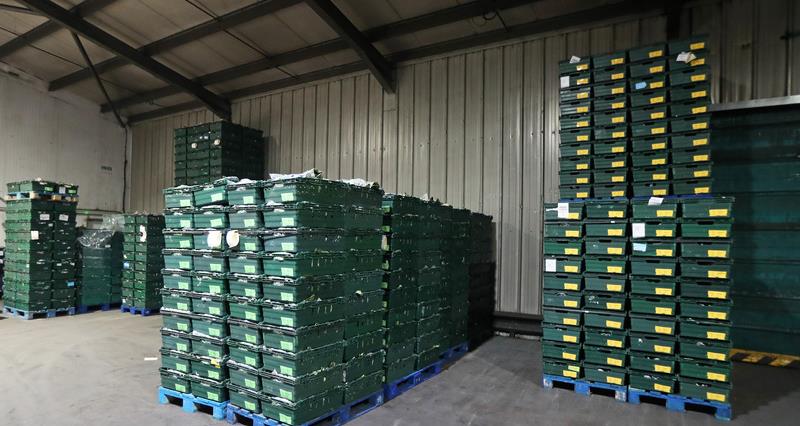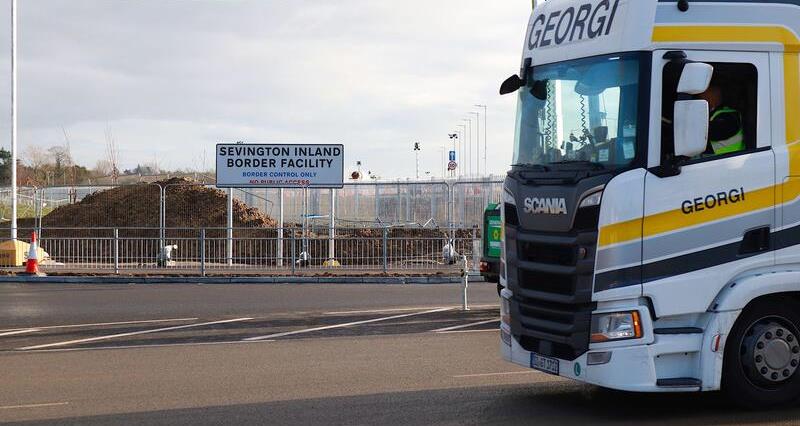The BTOM proposes a new approach to security controls and Sanitary and Phytosanitary controls at the border. The new regime will treat imports of plants for planting from EU and non-EU countries the same and will continue to apply a flat rate fee for some commodity types which was introduced in July 2022.
Commodities will be categorised by risk into high-, medium- or low-risk.
High risk
This category includes all plants for planting, potatoes, used farm machinery, certain seeds and timber.
- High risk plants and plant products will continue to require pre-notification and a phytosanitary certificate (PC) when being imported from the EU, Liechtenstein, and Switzerland. In accordance with the new rate of checks introduced in July 2022 (see Annex E of the draft BTOM), they will then be subject to checks at a frequency of 5-100%, depending on the risk.
- From January 2024, high-risk plants and plant products will come through a Border Control Post (BCP) or Control Point (CP) where identity and physical checks will be carried out by APHA.
- Checks will no longer take place at Points of Destination (PoDs) unless a business registers its premise as a Control Point.
Medium risk
This category includes plant products with an identified pest/disease risk.
- From October 2023, all imports of medium-risk plants and plant products (from both the EU and non-EU) will need to have a phytosanitary certificate upon entry. These goods will continue to require pre-notification.
- From January 2024, documentary checks and physical and identity checks at BCP will be introduced for medium-risk goods imported from the EU. In line with the reduced frequency of checks, checks will have a baseline of 3% for EU imports and 5% for non-EU imports. This may be subject to change in specific cases, where additional risk factors apply.
Low risk
This category is listed by exception for goods not listed elsewhere. It includes fresh produce which carries no identified pest/disease risk to GB.
- From January 2024, low-risk goods will be exempt from systematic controls at the border and so will not require a phytosanitary certificate or pre-notification. This includes most fruit, vegetables and cut flowers. Instead, they will be subject to enhanced inland monitoring via surveillance, and visits to premises by plant health inspectors.
Changes to these categories will be made in response to the risk situation.
The government aims to digitise PC (phytosanitary certificates) from May 2023 depending on trade partners’ readiness.
The BTOM refers to this as the ‘Single Trade Window’. Digitised PCs or ePhytos will be phased in for imports, starting with those countries that GB has the highest volume of trade with.
Control Point designation
If a business does not want their consignment to travel through a BCP, they must apply to be designated as a Control Point. This process can take between 3 – 18 months. It is advisable to explore this option now, in preparation for 31 January 2024.
CP (Control Points) are inland inspection facilities where SPS (Sanitary and Phytosanitary) checks of plants and plant products can take place, which operate under customs supervision.
More guidance and information on control points can be found on our dedicated page: Is becoming a Control Point right for my business?
The NFU's ask
The NFU is asking Defra to provide a clear and accessible application process, with defined stages and costs, so that growers can evaluate whether becoming a CP is the right option for their business.
Authorised Operator Status
As a secondary consideration, growers will have the option of taking direct responsibility for conducting plant health inspections themselves (rather than using an APHA Inspector) this will be through joining an Authorised Operator Scheme. We are awaiting further details on how this will be piloted – but this is not anticipated to be before the new BCP/CP arrangements come into effect.
- Government is exploring the introduction of a delegated authority model for the checks of plant and plant product imports, which will allow eligible traders to manage their own SPS risks.
- It proposes to delegate responsibility to Authorised Operators (AOs) to carry out their own physical and identity checks, provided they meet certain eligibility criteria.
- Defra will be testing elements of AOS in Autumn 2023. They will then run a live pilot to test the end-to-end process of operating as an AO in January 2024, subject to a successful testing period.
- All businesses wishing to either take part in the pilot, or the scheme when fully functional will need to be designated Control Points (CPs).
- It is advised that businesses register to become a CP now, as the process can take a minimum of 3 months.
- The competent authority can withdraw or suspend authorisation in cases of serious non-compliance. Should this happen, inspections will revert to the relevant UK plant health service.
Groupage for plants within the AOS and/or CP
If consignments are part of a groupage load, it is still worth growers exploring the CP option, but growers must be mindful that consignments may still have to go through a different CP first.
If one product within a consignment requires a physical check and the others do not, it has yet to be determined which type of CP groupage loads would need to pass through (i.e., a BCP or another CP).
Key dates of the draft BTOM
- From October 2023 – all imports of medium-risk plants and plant products (including those imports from the EU) will need to have a phytosanitary certificate upon entry.
- From January 2024 – high-risk plants and plant products must come through a Border Control Post (BCP) or Control Point (CP) where identity and physical checks will be carried out. Checks will no longer take place at Points of Destination (PoDs).
- From January 2024 – documentary checks and physical and identity checks at the border will be introduced for medium-risk goods imported from the EU. In line with the reduced frequency of checks, checks will have a baseline of 3% for EU imports and 5% for non-EU imports, but may be different in specific cases, where additional risk factors apply.
- From January 2024 – low-risk goods will be exempt from systematic controls at the border and so will not require a phytosanitary certificate or pre-notification. This includes most fruit, vegetables and cut flowers. Instead, they will be subject to enhanced inland monitoring via surveillance, and evidence-led visits to premises by plant health inspectors.
NFU concerns
We have been in close contact with Defra during the design of the BTOM and have been consulted on the proposed options. However, the publication of the draft BTOM does not provide clarity on fundamental issues that businesses need to know in order to decide if the AOS and CP models are useful for them.
In particular, the details around the designation process for CPs are not known and it appears there is some flexibility for APHA inspectors to assess the premises.
It is crucial that the process of becoming a Control Point is as accessible as possible.
Also, it has not been clarified yet how HMG is going to deal with groupage loads. The uncertainty around the AOS and CP designation makes it hard for members to assess the pros and cons of the proposed new measures.


